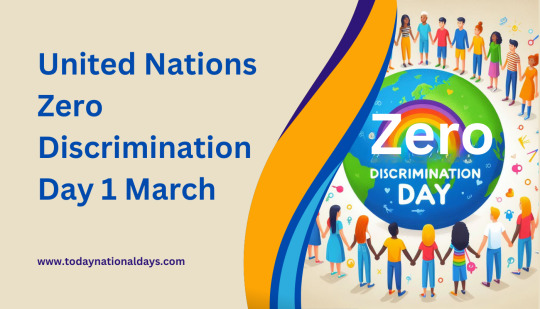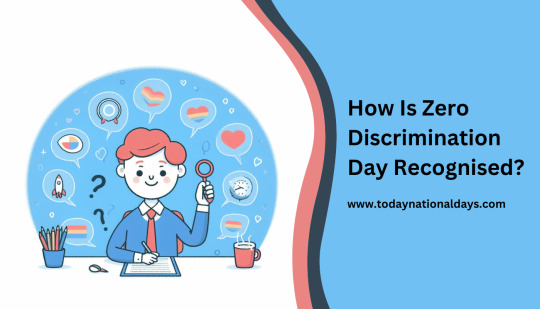A blog www.todaynationaldays.com dedicated to celebrating every day! 🎉 From quirky holidays to special occasions, find inspiration to make each moment a reason to smile. Let's make life a celebration! 🥳✨
Don't wanna be here? Send us removal request.
Text

4 January World Braille Day (Theme, History, Significance)
On 4 January World Braille Day, celebrated annually, highlights the significance of accessibility and independence for individuals who are blind or visually impaired.
This day is dedicated to raising awareness about Braille’s significance in empowering these communities to participate in society and exercise their human rights entirely.
While not recognized as a public holiday anywhere, World Braille Day serves as a platform for educators, charities, and non-governmental organizations to raise awareness of the challenges encountered by blind people.
It emphasizes the necessity of producing materials in Braille, ensuring blind people have equal access to education and learning opportunities as their sighted counterparts.
What Is World Braille Day?
Every January 4th, we honor World Braille Day, coinciding with Louis Braille’s birthday. Born in France in 1809, Louis became blind due to a childhood accident but adapted remarkably.
At 15, he developed a reading and writing system based on Charles Barbier’s night writing, today known as Braille. As it evolved, braille became more accessible and is now utilized worldwide.
What is Braille?
Braille is a system of raised dots arranged in patterns representing letters, numbers, and even musical, mathematical, and scientific symbols.
It’s a crucial tool for individuals who are blind or partially sighted, allowing them to access the same information found in printed materials.
Named after its creator, Louis Braille, in 19th century France, Braille enables people with visual impairments to read books, newspapers, and magazines.
Its importance extends beyond mere reading—it’s fundamental for education, fostering freedom of expression, and promoting social inclusion. Article 2 of the Convention on the Rights of Persons with Disabilities underscores this significance.
0 notes
Text
United Nations Zero Discrimination Day 1 March

Zero Discrimination Day 1 March, acknowledged by the United Nations and celebrated globally with other international organizations. It was inaugurated on March 1, 2014, by Michel Sidibe, the Executive Director of UNAIDS, following a key event in Beijing on February 27, 2016.
Zero Discrimination Day: Why Is It Important?
Zero Discrimination Day 1 March 2022 focuses on the urgent need to tackle global inequalities. These inequalities span across various aspects such as wealth, gender, age, health status, employment, disabilities, sexual orientation, substance addiction, gender identity, ethnicity, religion, and beliefs.
On March 1, Zero Discrimination Day highlights how we can all learn about and promote inclusiveness, empathy, tolerance, and, most importantly, the need for change. This day aims to advance equality before the law and in practice across nearly all UN member countries.
History of Zero Discrimination Day

UNODC advocates for addressing the HIV-related struggles of marginalized groups, like drug users and inmates, who face stigma and discrimination daily. This discrimination not only affects their access to healthcare and support but also reflects broader societal attitudes.
It leads to significant disparities in HIV prevention and treatment, highlighting the need to confront prejudice and promote human rights at all levels.
1 note
·
View note